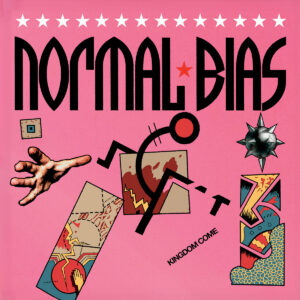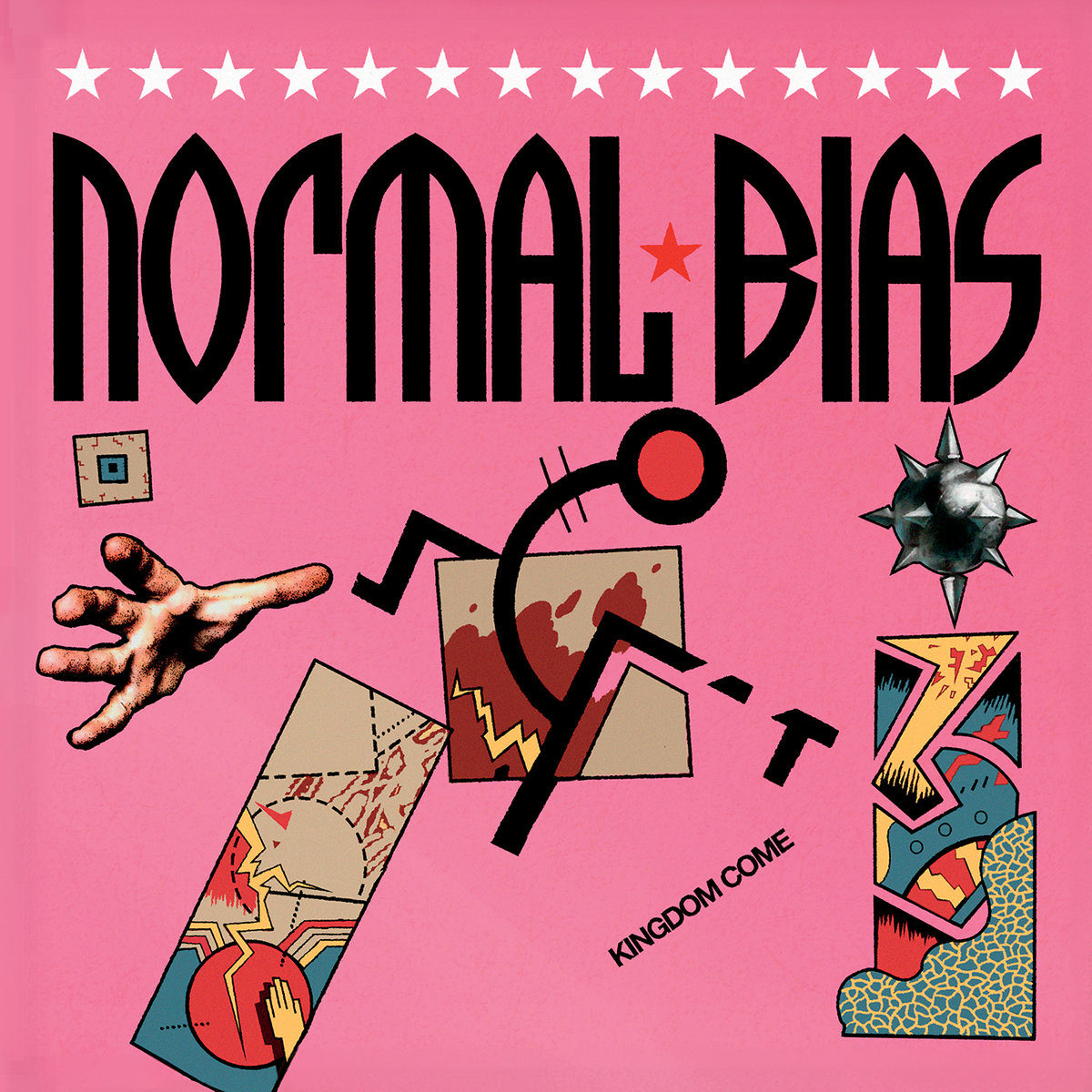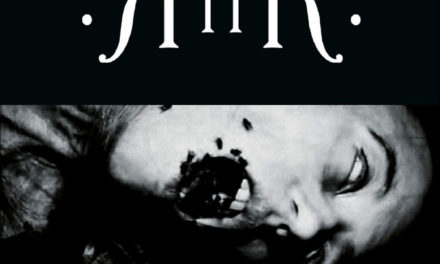
Normal Bias
Kingdom Come
Synthicide
Matt Weiner of TWINS and Chris Campion of Multiple Man’s 2022 EP as Normal Bias demonstrated a shared vision for a smooth and sultry version of body music, all without skimping on the funk that defines their main outlets. Their debut album Kingdom Come builds from that foundation, expanding on some of the electropop sounds that made their way into their first batch of tunes and showcasing Weiner’s excellent vocal work. Where the record still feels rooted in classic EBM rhythms, it’s the melodies that feel like the record’s guiding light.
The evolution of Normal Bias’ approach is emphasized by the contrast between the two songs that the band have ported over largely untouched from the EP, with both “Kingdom Come” and “Embody Control” seeming far more minimal in their construction than their neighbouring cuts. The former, now a title track, was a clear pointer towards the duo’s pop yen, but its broad, synth lead and gated snare seem far brassier in contrast to a song like “Holy”, which invokes Depeche Mode in complimentary fashion; firstly by Weiner’s wistful croon, and then through clever use of keys, pads and italo-disco claps and rimshots to create plenty of motion and energy. It’s a fine corollary to how “Falling Down” takes the slow boil menace of “Embody Control” and ramps it up to new heights, via the use of indistinct vocal samples and one of the project’s most insistent and punchy basslines.
The record’s turn towards more ornate variations of classic electronic pop composition is complimented by some lovely sound design and production choices that give the record a tasteful, high-gloss finish. A song like “Earth Dies Burning” benefits so much from how its orch hits and big fields of reverb interact with the vocals, dropping away to provide room for a slap-bass solo mid-track, one of many smile-worthy bits of popcraft. There’s just a real sense of class to the whole affair; witness how “Win Lose” invokes the classic Kraftwerk choir sound (the same one borrowed by New Order on “Blue Monday”), a move that would be crass if not for the way the song builds its pads and leads up and around it in reverential fashion, a genuine homage rather than rote imitation.
When writing about their debut, we opined that it was a proof of concept of sorts, and that Normal Bias were more than capable of taking that vision to even lusher and more polished territory. Kingdom Come is that promise realized, perhaps even more than we could have anticipated; so few acts thread the needle of electronic funk, soul and pop in such expert fashion. Recommended.






Trackbacks/Pingbacks